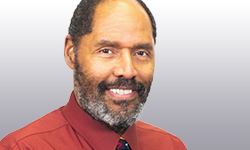

This article was originally posted on August 24, 2020. HHS Student Success Navigator, Life Coach, and Instructor Bill Johnson is a co-author.
As the Fall 2020 semester begins, a call to serve incoming Black male students is warranted. Advisors and administrators can work together to improve the overall experience for Black male students beginning postsecondary education. The purpose of this essay is to present a charge for advising Black male students. We, the authors, are Black men that come from diverse backgrounds. We experience microaggressions, subtle and overt racism, and prejudgment as we face our own Black male intersectionality in our professional and personal lives. Our aim is to begin the dialogue for improving and strengthening the Black male student academic advising experience, particularly at predominately White institutions.
Academic advising can be an intimidating process for all students but specifically for young Black males in a college environment. This can be attributed to the fact that they do not see individuals who represent intersections of race, gender, and identity. They become isolated fearful, and often avoid visiting spaces for an advising appointment when they feel those spaces are unwelcoming. This is coupled with the fact that they are being advised by professional advisors who sometimes cannot understand or empathize with their lived experiences as Black males.
In light of the current crises, amidst the Black Lives Matter movements, Black males matriculating into colleges this upcoming fall semester will be burdened with lots of “baggage to unpack” in the form of psychological stress, racism, stereotypes, bigotry, xenophobia, and the lack of diversity, equity, and inclusion on campuses where they will become more conspicuous as the minority on campuses across the United States.
The realistic effects of “working twice as hard to get half as far” in dealing with racism, microaggressions (Wu, 2010), white privilege (Myers, 2012), racial battle fatigue (Franklin, 2016; Smith, Hung, & Franklin, 2011), and John Henryism (James, 1994) lead to the deterioration of mental, physical, emotional, financial, and spiritual health (McGee & Stovall, 2015). These conditions make the college experience challenging (Harper, 2012). Black male students will encounter feelings of imposter syndrome, finding and adapting to a sense of belonging, in addition to struggles with how to navigate and engage in spaces that are perceived as unwelcoming (Cuyjet, 2006; Harper & Wood, 2016; Strayhorn, 2012).
To mitigate these issues, advisors should be in touch with and know about these Black males who may also be first time college students. Black male students will be judged on the burdens of low-expectations from their K-12 teachers which follow them into college (Bonner & Rolanda, 2006). Occasionally, they find themselves overwhelmed during the first year with the rigorous coursework and to an extent are bothered by feeling unprepared to meet their professors’ expectations based on such preconceived notions. Advisors can play significant roles by adjusting the way they advise and making Black males feel more welcome when they visit their offices. Here are a few tips to assist creating a more welcoming space for Black males.
Read the complete article here.